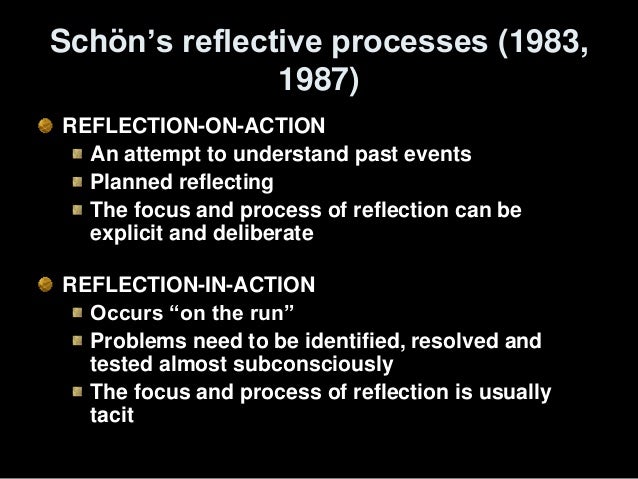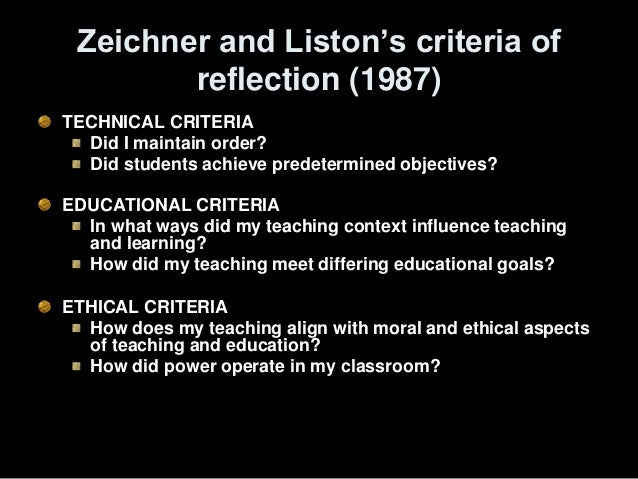Reflecting on Reflective practice
16 weeks of learning
Look at how far we have come…
I always tend to go back before I go forward. So I looked into the definition of what REFLECTING on reflective practice means: Reflective practice is understood as the process of learning through and from experiences towards gaining new insights of self and or practice. (Boud et al 1985; Boyd and Fales, 1983; Mezirow, 1981, Jarvis, 1992).
This involves examining assumptions of everyday practice and being self- aware and critically evaluating own responses to practice situations.
To think about these practices we have to take into account our own ethical, professional, pedagogic and conceptual concerns or beliefs. We have to be really honest for change to occur, we can all put our rose-tinted glasses about a lesson and look at outside factors. I am a trained reading recovery teacher and one of my tutors use to always say. If a lesson goes wrong how could you change it? Teaching behind the one-way mirror I was constantly reflecting in action. Schon (1983) He called this ‘Professional artistry’ and highlights that reflection is a fluid action, and teachers think on the run and continuous.
Our own environment or the culture at the school in which we work has to also be supportive. Just like students in our class we are all apprehensive about standing out. So our relationships also have to be very strong for this to occur.
Is this why a lot of us have written private Blogs? Gosh, I haven’t even got a Facebook account because I want to keep everything private and here I am exposing my thoughts to the world.
Zeichner and Liston’s (1996) 5 different levels at which reflection can take place during teaching:
1. RAPID REFLECTION: immediate, ongoing and automatic action by the teacher.
2. REPAIR: in which a thoughtful teacher makes decisions to alter their behaviour in response to students’ cues.
3. REVIEW: when a teacher thinks about, discusses or writes about some element of teaching.
4. RESEARCH: when a teacher engages in more systematic and sustained thinking over time, perhaps by collecting data or reading the research.
5. RETHEORIZING AND REFORMULATING: the process by which a teacher critically examines their own practice and theories in the light of academic theories.
1. RAPID REFLECTION: immediate, ongoing and automatic action by the teacher.
2. REPAIR: in which a thoughtful teacher makes decisions to alter their behaviour in response to students’ cues.
3. REVIEW: when a teacher thinks about, discusses or writes about some element of teaching.
4. RESEARCH: when a teacher engages in more systematic and sustained thinking over time, perhaps by collecting data or reading the research.
5. RETHEORIZING AND REFORMULATING: the process by which a teacher critically examines their own practice and theories in the light of academic theories.
Through researching, I found these two models. In the 1987 model, I use my own form of these questions to evaluate my lessons and unit plans. But it is scary that this was developed 30 years ago. Maybe I’m out of date in my reflections? Yes, I do still use power as we promote personalized learning, where it is child-centered.
In the 1996 model I use the top 3 for units daily and weekly reflections and the last 2 of my teaching as inquiry reflections.
I really liked how Mckay (2008, Forthcoming) says: there are compelling reasons to do reflection in collaboration with others. This could be very empowering if you were working in a supportive modern learning environment, where the teachers had a strong knowledge of the philosophies behind the practice.
“Let us not forget that a model is a tool and not a mirror.” (Gordon, 1984, p.243)
A lot of us examine our self too critically and we examine the person and not our practice.



Cheers Colleen. You make some great points on reflections. I can relate to the comment that ...
ReplyDelete'Our own environment or the culture at the school in which we work has to also be supportive. Just like students in our class we are all apprehensive about standing out. So our relationships also have to be very strong for this to occur' This includes reflecting with our collegial peers, which requires mutual respect and trust to be present in order for the benefits of reflection to take place and can lead to the building of further positive teaching practice. It also leads to collaboration. As I have been mainly using rapid and repair with occasional review, I have been limiting myself with regards to what is possible. I need to bring in the value of what stages 4 and 5 of Gibbs theory offers to help develop my confidence to deliver change within my practice.
Thanks for this comment I have just been reflecting on my mind-Lab journey and reflection is really an area I need to develop. You are so right about reflection and trust, as reflections are very personal.
Delete